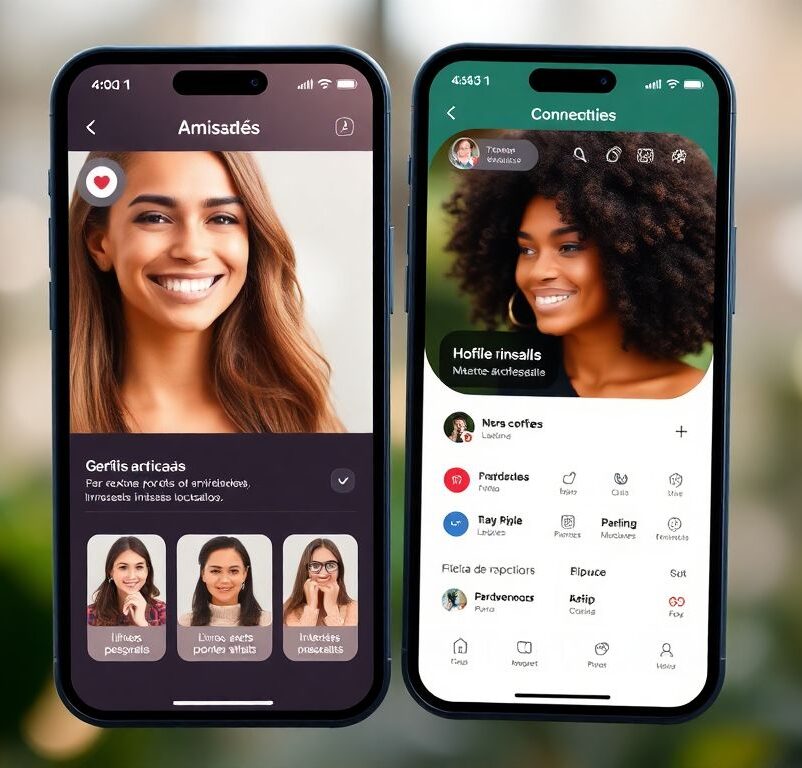Anúncios
Are you looking to make significant purchases, cover business expenses,
or enjoy premium travel benefits without worrying about insufficient credit?
High-limit credit cards can offer the financial flexibility and convenience you need.
For those in South Africa, selecting a card that provides a substantial initial limit can streamline big-ticket spending
be it for major electronics, home renovations, or frequent travel.
Securing such a card demands a clear understanding of how local banks evaluate credit scores,
income proof, and overall financial stability.
While a strong application can unlock generous credit lines from the start, responsibly managing that limit is key to avoiding debt pitfalls
Anúncios
This article explores the essentials of obtaining a high-limit card
from understanding local eligibility criteria
and comparing top financial institutions to adopting strategies that strengthen your creditworthiness.
By the end, you’ll be equipped to pursue a card that offers the expanded purchasing power you seek in South Africa’s competitive financial market.
2. The Local Context and How High-Limit Cards Work
2.1 How a High-Limit Credit Card Operates
A high-limit credit card grants a substantially larger spending cap right from the outset.
This credit line is determined by various factors, such as your documented income,
credit history, existing debts, and the financial institution’s internal policies.
With a high limit, you can:
• Undertake Larger Purchases: Whether it’s home furniture or a dream vacation,
you won’t immediately max out your card.
• Maintain Financial Flexibility: Handle unforeseen bills or medical emergencies without hitting your limit too quickly.
• Leverage Rewards Faster: If the card provides travel miles or cashback,
higher spending potential can lead to substantial returns.
2.2 Eligibility in South Africa
Local banks typically require stable income proof (e.g., pay slips, bank statements),
valid ID documentation, and a favorable credit score.
The stronger your overall profile, the more likely you are to receive an elevated initial limit.
2.3 Balancing Benefits and Responsibilities
While a high-limit card offers immediate purchasing convenience, mindful usage is vital:
• Avoid Overextending: Large spending can lead to high monthly payments if not controlled.
• Pay On Time: Late or missed payments can damage your credit score,
causing banks to reduce your limit or offer less favorable terms in the future.
• Monitor Utilization: Even with a sizable limit, maintaining a moderate usage ratio
(under 30% ideally) helps uphold a positive credit standing.
3. Types of High-Limit Credit Cards
3.1 Platinum, Gold, or Elite Cards
Mid-to-high-tier cards labeled Platinum, Gold,
or Elite often carry higher initial limits due to their target demographic
those with consistent income and strong credit histories.
They usually include perks such as airport lounge access, travel insurance, and more extensive rewards.
For instance, FNB’s Platinum card or ABSA’s Platinum range might immediately grant higher spending thresholds to eligible clients.
3.2 Premium or Infinite Editions
Certain banks offer premium or “Infinite” cards for high-net-worth individuals.
These products typically feature exceptional travel privileges
(comprehensive travel insurance, free lounge passes at OR Tambo or Cape Town International Airport),
specialized concierge services, and exclusive dining or hotel discounts.
Earning a limit above average is standard,
but prerequisites can be stringent—requiring a robust credit score and verifiable high income.
3.3 Co-Branded High-Limit Cards
Some large retailers or airlines collaborate with banks to issue co-branded cards targeting affluent shoppers or frequent travelers.
For example, a co-branded airline card might link you to miles accumulation right away,
while a premium retailer-aligned card could supply exclusive store discounts and VIP sales access.
These often come with elevated credit lines, acknowledging the user’s higher typical spend.
3.4 Flexible-Limit Solutions
A few South African lenders adapt your credit line dynamically.
If you demonstrate a pattern of timely payments and an upward trend in income,
the bank may raise your limit automatically.
This approach merges the security of a moderate starting limit with the potential to expand as your finances improve.
4. Comparing the Best Options
4.1 Fees and Charges
High-limit cards may involve notable annual fees, but these costs can be offset by their benefits:
• Annual Fee: Premium cards demand higher fees; some offer waivers if you exceed a specific spending threshold or maintain a minimum balance.
• Interest Rates: Typically more favorable for customers with excellent credit scores.
Check both nominal and effective rates for clarity on debt costs.
• Cash Advance Fees: Using your card at ATMs can be convenient but tends to attract elevated fees.
• Late & Over-limit Penalties: Missing payments or exceeding your limit can harm your credit score and incur fines.
4.2 Rewards & Incentives
Look for cards that mirror your primary expenses.
If you’re a frequent flyer, a card that accumulates air miles with carriers like South African Airways or FlySafair might prove beneficial.
Alternatively, a card focusing on cashback or partner discounts with top local retailers
(e.g., Pick n Pay, Checkers) can yield immediate savings.
Sample Reward Systems:
• Airline Miles: Convert spending into flights or seat upgrades faster.
• Cashback: A portion of each purchase is refunded as statement credit.
• Points: Redeemable for gift cards, merchandise, or discounts on specific services.
4.3 Exclusive Perks
High-limit cards often include extras:
• Insurance Bundles: Comprehensive travel coverage, purchase protection, and extended warranty.
• Concierge & Assistance: Get help booking events, hotels, or restaurants.
• Priority Services: Jump queues for certain banking processes or enjoy VIP lounge passes at major airports.
4.4 Online Management & Customer Support
A streamlined mobile app is crucial for quick limit adjustments, transaction monitoring,
and reward redemptions.
Evaluate each bank’s digital tools, checking if you can easily request an increased limit, monitor usage in real-time,
or redeem loyalty points online. Attentive customer support—
via phone, email, or chat—makes a huge difference when you need quick solutions.
4.5 Comparative Table
| Bank | Card Tier | Typical Annual Fee | Min. Income (approx.) | ||
|---|---|---|---|---|---|
| ABSA | Platinum | Medium | R 25,000–40,000/month | ||
| FNB | Premier /Platinum | Medium/High | R 25,000–50,000/month | ||
| Standard Bank | Signature | High | R 40,000+/month | ||
| Nedbank | Platinum | Medium | R 25,000–40,000/month | ||
| Capitec | Gold/Platinum | Low/Medium | R 15,000–30,000/month |
5. Strategies for Choosing the Ideal Card

5.1 Profile Your Expenses
Identify if you’re a heavy traveler, an online shopping enthusiast,
or a frequent grocery spender.
A travel-oriented card is valuable for flight upgrades and lounge access,
while a straightforward cashback or grocery-based rewards card might be better for routine household expenses.
5.2 Strengthen Your Credit Score
High-limit cards usually favor strong credit backgrounds.
Pay current bills on time, reduce existing debts,
and avoid negative marks like missed payments or collections.
Periodically checking your credit report ensures accuracy and spotlights areas for improvement.
5.3 Weigh Fees vs. Benefits
High annual fees may be worth it if you regularly use included perks like airport lounges or comprehensive travel insurance.
Conversely, if you can’t maximize those perks, opt for mid-tier cards with moderate fees and more practical benefits.
Key Statistics and Insights
Recent data underscores the growing importance of credit cards
particularly those with higher limits—in the South African financial landscape:
Increased Adoption:
Over 40% of local consumers now hold at least one credit card,
reflecting the market’s growing reliance on credit facilities for daily purchases and short-term financing.
High Spenders:
Among credit card users, approximately 30% seek limits exceeding the basic threshold
(often above R30,000) to accommodate larger expenditures such as travel,
home improvements, or investment in side businesses.
Credit Score Correlation:
Studies show that individuals with a credit score of 650+ are twice as likely to secure an immediately higher limit,
emphasizing how responsible financial behavior boosts approval chances for premium products.
Rewards Engagement:
Nearly 60% of cardholders with moderate-to-high credit limits actively participate in rewards programs
mainly cashback, airline miles, or store points
demonstrating consumers’ desire for immediate returns on spending.
Mobile-Driven Applications:
Banks report a 45% year-on-year increase in digital credit card applications,
highlighting consumer preference for streamlined,
app-based approval processes.
6. Calculating the Card’s Total Cost
To accurately assess a high-limit card’s viability, calculate the sum of annual fees,
interest on carried balances, potential penalties,
and any additional surcharges (like currency conversion or cash advances).
Compare these costs against the estimated value of rewards and special perks you’ll likely use.
Reading the Terms & Conditions carefully ensures you understand interest calculations,
redemption procedures, and penalty clauses.
This level of awareness safeguards your budget
and confirms you’re receiving genuine value from your chosen card.
7. Testimonials: High-Limit Card Success Stories
Busisiwe R., Johannesburg
“I needed a higher limit for my online business expenses, and ABSA Platinum was a game-changer.
The limit approved was generous from day one.
It’s allowed me to handle supply orders quickly,
and the points-based rewards help offset some monthly costs.”
Sihle D., Cape Town
“After improving my credit score, I switched to Standard Bank’s Signature card.
The credit limit was well above my old card’s,
and the travel insurance plus priority support makes regular business travel less stressful.
It feels like a real upgrade in my financial life.”
8. FAQ: Frequently Asked Questions
Q: How do I ensure I qualify for a high limit from the start?
A: Maintain a strong credit score, show steady income,
and provide clear financial documentation.
Some banks also consider existing relationships and positive account histories.
Q: Are the annual fees higher on high-limit cards?
A: Generally, yes.
However, the fees can be offset if you frequently utilize travel insurance, airport lounge access, or rewards systems.
Q: What is the difference between carrying a balance and paying in full?
A: Carrying a balance incurs interest on any unpaid portion, while paying in full avoids interest charges altogether.
High-limit holders often pay in full to preserve credit capacity and avoid high costs.
Q: Can my limit increase over time?
A: Yes. If you consistently use your card responsibly, banks may offer limit increases
or promotions, especially if your income grows or your credit profile strengthens.
9. Summary of Key Points
• Local Banks:
ABSA, FNB, Standard Bank, Nedbank, and Capitec all feature high-limit options suited to different budgets and goals.
• Credit Score Matters:
A higher score generally leads to a larger initial limit and better perks.
• Rewards & Fees:
Evaluate potential returns on miles, points, or cashback against annual fees and interest costs.
• Responsible Usage:
Timely payments and moderate usage maintain a healthy credit standing.
Ready to secure a high-limit credit card that meets your financial aspirations?
Begin by assessing your credit health, researching the market’s premium offers,
and determining which rewards and perks resonate with your lifestyle.
Gather relevant documents—payslips, bank statements, and ID
then apply through online channels or by visiting a local branch.
Act now to enjoy higher spending flexibility, exclusive benefits,
and a smoother financial journey.
Don’t let opportunity slip away; upgrade your financial toolkit with a high-limit credit card today.
Additional Resources
• Local Bank Websites: ABSA, FNB, Standard Bank, Nedbank, and Capitec
• Credit Bureaus: TransUnion, Experian, and others for score checks
• Comparison Tools: Online platforms that detail fees, rates, and perks
• Financial Literacy Blogs: Advice on managing credit and avoiding debt pitfalls
Obtaining a high-limit credit card in South Africa is more achievable than you might think
provided you maintain solid credit health, demonstrate stable income,
and choose the right bank. By following the steps and strategies outlined here,
you can confidently pursue a card that grants you ample purchasing power,
access to valuable rewards, and peace of mind for major purchases or unexpected bills.
Embrace this powerful financial instrument, use it responsibly,
and relish the enhanced flexibility and security it brings to your daily life.



